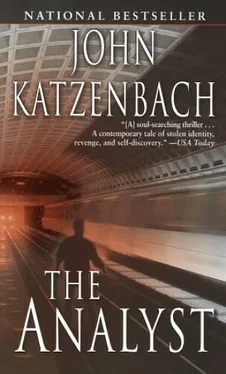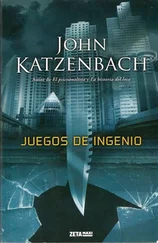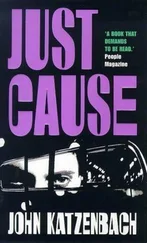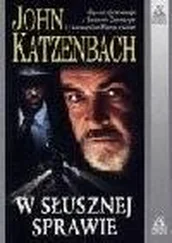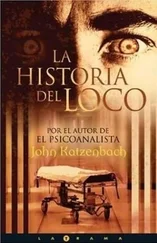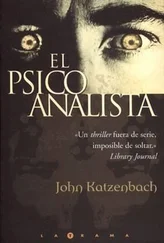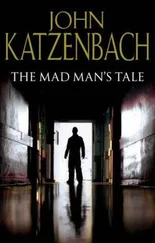Dr. Lewis nodded. “Continue, please.”
“No. She doesn’t have anything to do with this.”
The old analyst’s eyebrows arched slightly. “Really? I presume we are speaking of your wife?”
“Yes. We met. We fell in love. We married. We were inseparable for years. She grew ill. We had no children because of her sickness. She died. I continued on all alone. End of tale. She isn’t connected to this.”
“Of course not,” Dr. Lewis said. “But you and she met, when?”
“Shortly before we began treatment. We met at a cocktail party. We were both newly minted; she an attorney, me a physician. Our courtship took place while I was in analysis with you. You should recall that.”
“I do. And what was her profession?”
“She was an attorney. I just said that. You should remember that, as well.”
“Again, I do. But what sort of attorney? Specifically.”
“Well, at the time we met, she had just joined with the Manhattan Office of the Public Defender as a low-grade criminal defense attorney. She worked her way steadily up into the felony divisions, but then tired of seeing all her clients go to prison, or worse, not go to prison. So she went from there into a most unique and modest private practice. Mostly civil rights litigation and work for the ACLU. Suing slum landlords and filing appellate briefs for wrongfully convicted prisoners. She was a liberal do-gooder who did good. She liked to joke that she was one of the small minority of Yale Law graduates that never made money.” Ricky smiled at this, hearing in his mind’s ear his wife’s own words. It was a joke they shared happily for many years, he thought.
“I see. In the course of the time you started your treatment, the same time that you met and courted your wife, she was involved in defending criminals. She followed this up dealing with many angry fringe types whom, no doubt, she further enraged by bringing legal action against them. And now, you seem involved with someone who fits the category of criminal, albeit seemingly far more sophisticated than those she must have known. But you think there can be absolutely no possible link?”
Ricky stopped, mouth open to reply. This thought chilled him.
“Rumplestiltskin has not mentioned…”
“I merely wonder,” Dr. Lewis said, waving a hand in the air. “Food for thought.”
Ricky paused, memory working hard. Silence grew around the two men. Ricky began to picture himself as a young man. It was as if abruptly some fissure in some granitelike brick within him had opened. He could see himself: far younger, filled with energy. At a moment when the world was opening for him. It was a life that bore little resemblance and little connection to his current existence. That discrepancy, so denied and ignored, suddenly frightened him.
Dr. Lewis must have seen this in his face, for he said, “Let us speak of who you were twenty-odd years ago. But not the Ricky Starks looking forward to his life, his career, and marriage. The Ricky Starks who was filled with doubts.”
He wanted to respond swiftly, dismiss this idea with a quick brush of the hand, but stopped himself sharply. He plunged into a deep memory, recalling indecision and anxiety, remembering the first day he walked through the door to Dr. Lewis’s Upper East Side office. He glanced over at the old man sitting across from him, seemingly studying every flinch and twitch in Ricky’s posture and thought how much the man had aged and then wondered if the same was true for himself. Trying to recollect the psychological pains that stirred one to a psychoanalyst so many years earlier was a little like the phantom pain that an amputee feels; the leg missing, but the hurt remaining, emanating from a surgical emptiness, both real and unreal at the very same instant. Ricky thought: Who was I then?
But he answered carefully: “It seems to me that there were two sets of doubts, two sets of anxieties, two sets of fears, any of which threatened to cripple me. The first set of each category were those about myself and stemmed from an overly seductive mother, a demanding and cold father who died young, and a childhood filled with accomplishments instead of affection. I was, by far, the youngest in my family, but instead of treating me like some precious baby, I was given impossible standards to uphold. At least, that’s it in total simplicity. That was the set that you and I examined over the course of treatment. But the overflow from these neuroses impacted the relationships I had with my patients. During the course of my own treatment I saw patients in three venues: at the outpatient clinic at Columbia Presbyterian Hospital; a brief stint with the severely compromised at Bellevue…”
“Yes,” Dr. Lewis nodded. “A clinical study. I recall you did not particularly enjoy treating the truly mentally ill…”
“Yes. Correct. Dispensing psychotropic medications and trying to keep people from harming themselves or others.” Ricky thought Dr. Lewis’s statement had a provocative quality to it, a bait he didn’t rise to. “… And then, over the course of those years, perhaps twelve to eighteen patients in therapies that became my first analyses. Those were the cases you heard about, while I was in therapy with you.”
“Yes. Yes. These are figures I would agree with. Did you not have a supervising analyst, a gentleman who watched your progress with those patients?”
“Yes. A Doctor Martin Kaplan. But he…”
“He died,” the old analyst interrupted. “I knew the man. A heart attack. Very sad.”
Ricky started to continue, then thought there was an oddly impatient tone to Dr. Lewis’s voice. He took note of this, then went on. “I’m having trouble connecting names and faces.”
“They are blocked?”
“Yes. I should have excellent recall, and yet, I find, I cannot connect faces and names. I will recall a face, and a problem, but not be able to remember a name. Or vice versa.”
“Why do you think this is?”
Ricky paused, then replied, “Stress. It is simple. Under the sort of tension I’ve been placed, simple things become impossible to recall. Memory gets all turned around and twisted.”
The old analyst nodded again. “Do you not think that Rumplestiltskin knows that? Do you not think that he is somewhat expert at the psychology of stress? Perhaps, in his way, far more sophisticated than you, the physician. And would this not tell you much about who he might be?”
“A man who knows how people react to pressure and anxiety?”
“Of course. A soldier? A policeman? A lawyer? A businessman?”
“Or a psychologist.”
“Yes. Someone in our own profession.”
“But a doctor would never…”
“Never say never.”
Ricky leaned back chastened. “I’m not being specific enough,” he said. “Rule out the people I saw at Bellevue, because they were crippled far too immensely to produce someone this evil. That leaves my private practice and the people I treated in the clinic.”
“The clinic, then, first.”
Ricky closed his eyes for a moment as if this might help him picture the past. The outpatient clinic at Columbia Presbyterian was a warren of small offices on the ground floor of the immense hospital, not far from the emergency entrance. The majority of the clientele traveled up from Harlem or down from the South Bronx. They were mostly poor and struggling, working-class folks of a variety of colors and hues and prospects, all of whom saw mental illness and neurosis as oddly exotic and distant. They occupied the no-man’s-land of mental health, between the middle class and the homeless. Their problems were real; he saw drug abuse, sexual abuse, physical abuse. He saw many more than one mother abandoned by some husband, with cold-eyed and hardened children, whose career goals appeared to be limited to joining a street gang. In this crowd of the desperate and disadvantaged, Ricky knew, were more than a few people who had grown into criminals of significant proportions. Drug dealers, pimps, robbers, and killers. He remembered that there were some clients who came to the clinic who exuded a sense of cruelty about them, almost like a distant smell. They were the mothers and fathers diligently helping to create the next generation of inner-city criminal psychopaths. But he knew, as well, that these were heartless people who would direct their anger against their own. If they lashed out at someone from a different economic strata, it was by chance, not design. The business executive in his Mercedes who breaks down on the Cross Bronx Expressway on the way home to Darien after working late in the midtown office, the well-heeled tourist from Sweden who takes the wrong subway line at the wrong hour in the wrong direction.
Читать дальше
